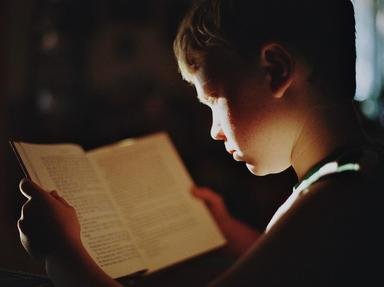
More Who Wrote the Book First? Quiz
Many books have been turned into movies over the years. This is a follow-up quiz to my first one on this topic "Who Wrote the Book First?". For this one, match the book/movie title with the author of the book.
A matching quiz
by Trivia_Fan54.
Estimated time: 3 mins.